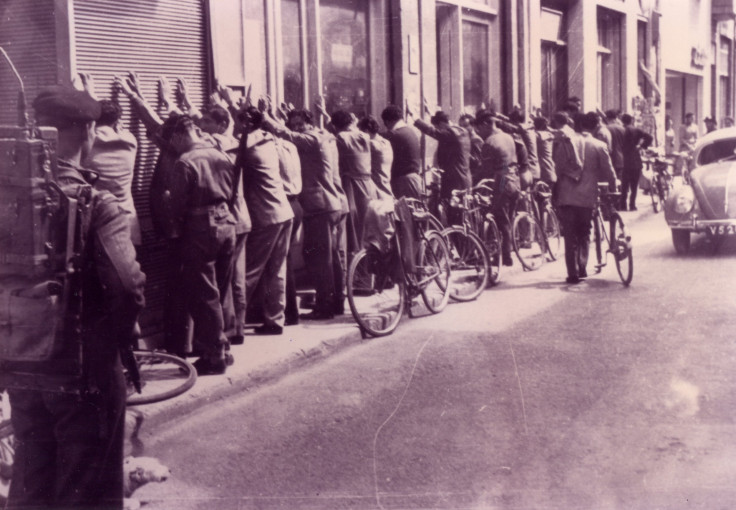Twilight Of Empire: Aging Cypriot Rebels To Sue UK Government For Torture And Abuse

On the heels of successful litigation by elderly Kenyan Mau Maus seeking to sue Britain’s government for damages arising from abuses suffered during a rebellion decades ago, old fighters from a vastly different part of the British Empire are also pursuing similar redress.
Some 60 aging Cypriots who fought against British rule of their island during the 1950s now want to sue the UK government over allegations they were tortured by colonial officials while in custody.
Thassos Sophocleous, 79, president of a Cypriot veterans group, told the Associated Press that as a captured guerilla fighter, he was tortured by British guards and police for more than two weeks in a Nicosia prison in 1956. He said he was flogged, had the soles of his feet and knees clubbed, and was kicked in the head, body and testicles.
Sophocleous told BBC that some Cypriot prisoners were executed as well as tortured.
"Once, they were hitting me on the back with whips, and at the end of the whip there were small pieces of iron,” he said.
“They were opening up my back, blood was coming out, and they were salting it. I asked them to kill me. But [the guard] was laughing, saying: 'We're not going to kill you [just] because you don't want to suffer. You are going to suffer here, night and day.'''
Sophocleous, who said he was encouraged by the successful path of the Kenyan affair, has retained the London law firm of K.J. Conroy & Co. to build the case. He declared he is not seeking money, but rather an admission that the British government used torture against colonial prisoners.
‘‘As in all turning points in history, it’s not the people who are responsible, but some leaders who are in power when these things happened and they bear the responsibility,’’ he told AP.
A Cypriot rebel group called Eoka (which Sophocleous belonged to) fought a bloody four-year campaign of bombings and assassinations against British rule that ultimately led to the island’s independence in 1960.
Upon conviction on charges of possessing weapons, Sophocleous and other Eoka inmates were sentenced to life imprisonment and transported to the notorious Wormwood Scrubs prison in London.
There, too, he charged Cypriots were tortured.
A Labour MP who visited the inmates there, Fenner Brockway, told the House of Commons in July 1957: "I saw prisoners at Wormwood Scrubs whose arms had been broken, who had swellings on their bodies the size of cricket balls, and scars on their necks."
By 1960, when Cyprus gained independence from Britain, the prisoners were freed.
"I'd been sentenced to life in prison and then one day I learned I'd go free. It was amazing," Sophocleous said.
"Of course, I was very happy."
He added: "I don't have hard feelings about the British people or British soldiers, but I have hard feelings about those who were in charge in the 1950s."
In response to the gathering case, the Foreign Office said in a statement: "The UK government abhors all abuses of human rights. Much has happened in the past which we may regret today. We should keep in mind that these events did happen over half a century ago and bear no relation to the present government's policies towards Cyprus, which are well known."
Cyprus was a key strategic possession for Britain, primarily as a gateway to India, and became even more important following the loss of the Suez Canal in 1956. Britain still keeps two military bases on the island today.
Britain itself is now home to a large Cypriot community, numbering as high as 300,000 by some estimates.
Sadly, Eoka never got what it really wanted – unification with the Greek motherland. In 1974, an invasion by Turkey partitioned the island into two segments, the Turkish north and the Greek south.
© Copyright IBTimes 2024. All rights reserved.











